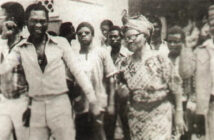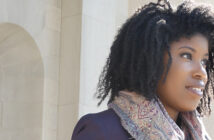Retired South African cleric and anti-apartheid activist Archbishop Desmond Tutu has turned 85. Battling with ill-health, he remains a tireless fighter against discrimination and a much loved public figure.
Few have influenced South African society so profoundly as Desmond Tutu. The phrase “Rainbow Nation,” which symbolizes the diversity of the post-apartheid South Africa, was coined by him. It exposed him to criticism from those who pointed out that neither black nor white were colors of the rainbow.
South African writer Antjie Krog said that Tutu has given the people of South Africa, in which there are 11 official languages, a common tongue. “We live in a country in which almost 90 percent of the population are forced to use a language that is not their own. That’s why the idea of a Rainbow Nation is so important, it creates a vocabulary of liberty, respect and humanity. Tutu has built a vocabulary with which we can communicate with one another,” she said.
Tutu has the same stature as the late South African president and anti-apartheid icon Nelson Mandela. Mandela was responsible for political ideals, Tutu for the values of a common humanity. During the hearings of the Truth and Reconciliation Commission shortly after the end of apartheid, some 2,000 people delivered testimony. Tutu was present in person while some 1,500 took to the stand and was always able to a say a few words to them once they had finished speaking.
Archbishop Desmond Tutu has the power to move an audience, irrespective as to whether they were devout or bereft of any religious inclinations. He was one of the key figures in the fight against apartheid while Nelson Mandela was in prison. He encouraged reconciliation and respect for others. In 1984, he received the Nobel Peace Prize.
In commemoration of his birthday, the Desmond and Leah Tutu Legacy Foundation will be hosting the sixth annual Desmond Tutu International Peace Lecture




